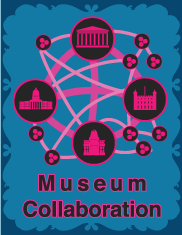Archive for the ‘Organisation’ tag
Markets not Stakes… no comments
 Am now looking at a book on economics called, ‘Markets not Stakes: The Triumph of Capitalism and the Stakeholder Fallacy.’ This is written by Professor Patrick Minford and was published in 1998. He outlines why he thinks that the stakeholder culture was mistaken and how capitalism was thriving. The stakeholder concept was supposed to find the middle way between ‘failed socialism and free-market capitalism.’ The blurb discusses the way in which regulatory proposals were to create more rights for workers, allow the government to override the pull of market forces on investment in an attempt to curb the 80s short term corporate culture.
Am now looking at a book on economics called, ‘Markets not Stakes: The Triumph of Capitalism and the Stakeholder Fallacy.’ This is written by Professor Patrick Minford and was published in 1998. He outlines why he thinks that the stakeholder culture was mistaken and how capitalism was thriving. The stakeholder concept was supposed to find the middle way between ‘failed socialism and free-market capitalism.’ The blurb discusses the way in which regulatory proposals were to create more rights for workers, allow the government to override the pull of market forces on investment in an attempt to curb the 80s short term corporate culture.
I am particularly interested in this because it would seem very easy now to say how obviously mistaken this view was. However, it goes on to say that ‘Stakeholding is no different in essence from interventionist and redistributive taxation, its only difference is its lesser transparency, which therefore deceives people into believing it to be innocuous.’ Although he then apparently goes onto argue that it destroys incentives (the meat and blood of economics, according to ‘The Armchair Economist’ ) I’m initially quite interested in the transparency issue.
When I worked for a FTSE100 company that was quite concerned about corporate governance and hence ‘transparency,’ a word which we hear all too often nowadays, the other word that was always brandished was ‘stakeholders.’ Generally the more your job was to do with explaining figures and processes to people, the more you had to take ‘stakeholders’ into account. This actually meant not just anyone who had a right of some sort (surely just one’s bosses in a monolithically hierarchical company structure?) to poke their nose into what was going on, but those who felt that they ought to have a right. Or those, like me, who were just very, very curious about how it all worked. The more stakeholders there were (in a PLC serving most of the country’s households, that was at least 18 million) actually the less possible it became to be transparent. I’m increasingly convinced that the possibility of transparency decreases exponentially in any very small company (say, 7 or fewer employees) or any company that has over say, 300 employees, just because of organisational factors. I’m also wondering whether this is not accidental, but actually deeply tied into company size (depending on its structure, or how the power gets passed around). So am quite interested to read this book and see what comes out.
Am reading it alongside ‘The Armchair Economist’ which is interesting, but is leaving me feeling vaguely unsatisfied at present.
01 – Museum collaboration. no comments
How can smaller museums have access to exhibition artifacts?

Main Concept
I believe that museums should be able to collaborate with other museums. Not only in their same country but also around the world. The Museums Association (MA), along with The Museums, Libraries & Archives Council (MLA) in the UK, indicates that a museum should “enable people to explore collections for inspiration, learning and enjoyment.”
This means that the cultural motivation or agenda of the museum can be manipulated by different factors like: political, economical, location, etc…
The different agenda that the museum can follow, motivates me to approach the problem from different perspectives and disciplines.
The main two disciplines
Within Web Science, my main two disciplines will be:
- Museum Studies / Museology
- Information Technology for Organizations
Museum Studies
Through the museum studies, I will be attempting to explore the different museum methodologies but focusing mainly on the purposes of the museums and how the response from people. Peter Vergo mentioned in 1989
… too much about museum methods and too little about the purpose of the museum …
(Vergo, 1989: 3)
This indicates how it is not only important the methodological approach wich is directly related to Graphic Design and Visual Communication; which is my area of expertise.
The MLA indicates a basic typology of museums that can be able to target the different approach for the museum purpose within the UK.
- National museums
- Local authority museums
- University museums
- English Heritage museums
- Independent museums
- National Trust properties
- Regimental museums and armouries
- Unoccupied royal palaces
Being a Web Science research, this typology will have to be challenged and extended in order to globalize the museum typology throughout the world.
Through my research I will attempt to develop a new approach of how museums exhibit to their public by extending their exhibition material through different collaborative processes.
Information Technology for Organizations
Within the IT for Organizations, the technology developed can be able to adapted for the requirements of the institution or organization. Through this discipline I believe I can target a different problematic of museum collaboration. Issues like: e-learning, disabled IT access, gaming, security system, etc..
A full technological approach with a sociological combination will allow the research to preview different areas of improvement. Areas in which museums, institutions and academics can be able to benefit from it.
My next step
Throughout the next days I will start to gather the essential bibliography for this research. I will start posting the main theories and methods gathered from these books and start finding people that relate or can be able to collaborate with my research. Ultimately I will like to find some institutions that are keen is promoting these kind of ideas to provide support to smaller museums that are struggling to get ‘out there’.
Organisation no comments
As this module encourages a basic and comprehensive approach to a topic, I’ve tried to go as far back to basics as possible. My topic of interest regarding the research is simply ‘Organisation’. Organisation, in my opinion, is the backbone of everything (life and the universe included!), so it makes sense to me to try and understand some basic, but I suspect difficult, questions regarding organisation, such as how it occurs and why it seems neccessary for development. Of course I am limiting my research to the role of organisation in human society, as I don’t possess the required physics or philosophy degrees to tackle the broader implications of organisation!
I think this topic is important given the context of this MSc, and also given the buzzwords of our generation: “Network” “Interconnected” and “Global” all have their roots in the term ‘organisation’. It’s important, therefore, to look at organisation in its basic form, and I’ll be looking at organisation through the lenses of two disciplines; Linguistics and Sociology.
Linguistics was chosen because it seems likely that the roots of human social organisation lie in the construction of language and communication. I know very little about linguistics, so it will be interesting to develop this hunch through an understanding of the core principles of the topic. The development of language and speech has surely played a key role in our development to the highly connected society we see today, and perhaps this approach will let me go far back in time and evolution to find the roots of organisation.
Sociology was chosen because a brief look at sociology shows it to be full of interesting ideas and theories regarding the dynamics, structures and meanings behind organisation. Humans have organised for various reasons over the centuries, sometimes unknowingly, sometimes deliberately, sometimes against their will. It will be interesting to see what sociology has to say about the motivations behind these cultural, political and economic forces that lead to organisation. Again, this is all uncharted territory for me, but the foundation texts seem promising. In sociology I may also find some philosophy, which again I have little experience with, but which may evolve into a sub category of my research. It seems you can never get away from the connections!
I know that there will be a fair amount of crossover between these two disciplines, but I hope that they will remain distinct enough to allow for a conclusion that shows what each discipline has to say about the topic ‘Organisation’.
My current reading list:
Wardhaugh, R (2006): An Introduction to Sociolinguistics: 5th Edition. Oxford: Blackwell
Giddens, A (2006): Sociology: 5th Edition.Cambridge: Polity.
Thomas, L & Wareing, S (1999): Language, Society and Power; An Introduction. London: Routledge
Aitchison, J (1972): Lingusitics, An Introduction. London: Hodder & Stoughton.
Trudgill, P (1983): Sociolinguistics: An Introduction to Language and Society. London: Penguin.